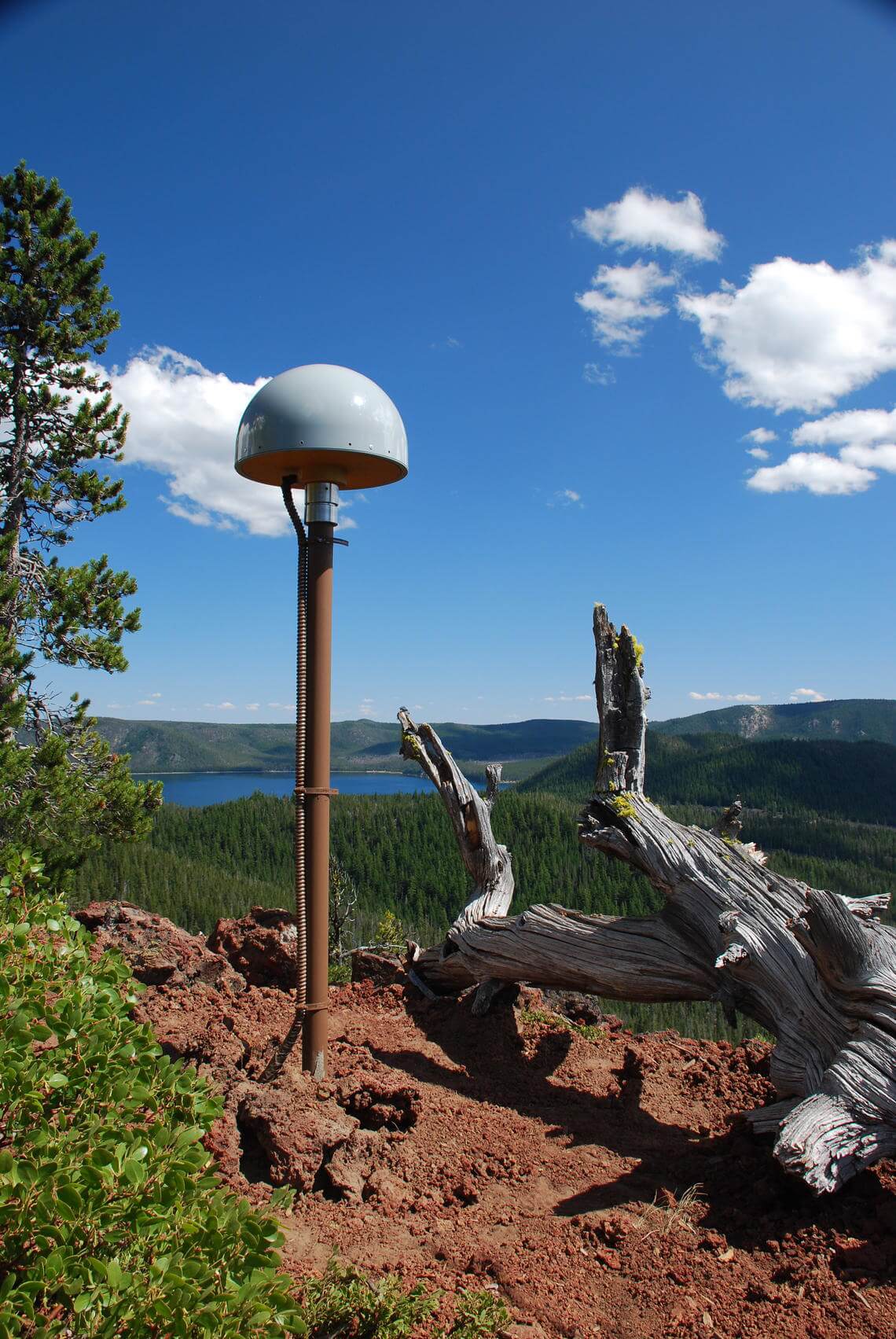BUILDING RISK KNOWLEDGE
WHY THE FOUNDATION WAS BORN? >
WHY THE FOUNDATION WAS BORN? >
DISASTERS ARE NOT NATURAL, they are socially built, due to lack of preparation, prevention, mitigation work, education and monitoring. They are natural risks or hazards that impact vulnerable societies. Knowledge help reducing social and structural vulnerability in order to have more resilient societies!
The Global Positioning System (GPS) consists of a group of satellites orbiting the Earth that continuously transmit information to receivers on the ground. Using this data, it is possible to calculate the exact position of the receiver on the Earth at any given time.
To use GPS data for volcano monitoring, multiple receivers are placed around a volcano as a GPS network. In some locations, instruments are permanently installed and record data continuously. However, sometimes scientists setup a “campaign” GPS network above “benchmarks” (sites with a standard point of reference) where they are left for several days to record data. Campaign-style data are often recorded from the same benchmark sites annually or as needed to detect changes in volcano behavior.
By looking at data from a single receiver over a period of time, scientists can determine whether the ground surface has deformed. By combining the data collected from a GPS network, it is possible to get a larger view of which areas of the volcano’s surface are moving as well as the speed and direction of movement. This large-scale picture of volcano deformation can be used to construct a model of what is happening beneath the surface—for example, the location of any magma reservoirs or active faults.
GPS sensor networks can track three-dimensional movements of the ground surface. The systems are inexpensive and allow a very accurate study.
GPS is the name of the United States’ satellite navigation system. Other countries have launched their own satellite navigation systems, including GLONASS (by Russia) and Galileo (by Europe), but all follow the same basic principles as GPS. We refer to these systems as GNSS (Global Navigation Satellite System). Modern receivers can record data from several types of GNSS satellites, which increases the overall accuracy of calculated positions.

Global Positioning System receiver (called a GPS monument) at North Rim Station, a monitoring location at Newberry volcano, Oregon.
VOLCANO ACTIVE FOUNDATION RESPONSABILITY
nº 2195 authorised by the Madrid's Minister of Justice
NIF G67314625
SF Abocados Francesc Macia 7 pl17
08029 Barcelona, Spain
We may request cookies to be set on your device. We use cookies to let us know when you visit our websites, how you interact with us, to enrich your user experience, and to customize your relationship with our website.
Click on the different category headings to find out more. You can also change some of your preferences. Note that blocking some types of cookies may impact your experience on our websites and the services we are able to offer.
These cookies are strictly necessary to provide you with services available through our website and to use some of its features.
Because these cookies are strictly necessary to deliver the website, refusing them will have impact how our site functions. You always can block or delete cookies by changing your browser settings and force blocking all cookies on this website. But this will always prompt you to accept/refuse cookies when revisiting our site.
We fully respect if you want to refuse cookies but to avoid asking you again and again kindly allow us to store a cookie for that. You are free to opt out any time or opt in for other cookies to get a better experience. If you refuse cookies we will remove all set cookies in our domain.
We provide you with a list of stored cookies on your computer in our domain so you can check what we stored. Due to security reasons we are not able to show or modify cookies from other domains. You can check these in your browser security settings.
These cookies collect information that is used either in aggregate form to help us understand how our website is being used or how effective our marketing campaigns are, or to help us customize our website and application for you in order to enhance your experience.
If you do not want that we track your visit to our site you can disable tracking in your browser here:
We also use different external services like Google Webfonts, Google Maps, and external Video providers. Since these providers may collect personal data like your IP address we allow you to block them here. Please be aware that this might heavily reduce the functionality and appearance of our site. Changes will take effect once you reload the page.
Google Webfont Settings:
Google Map Settings:
Google reCaptcha Settings:
Vimeo and Youtube video embeds:
The following cookies are also needed - You can choose if you want to allow them:
You can read about our cookies and privacy settings in detail on our Privacy Policy Page.
PRIVACY POLICY